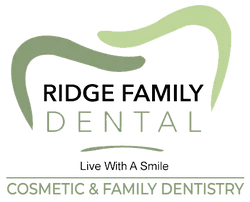When most patients think about their oral health, they tend to focus on the health of their teeth. However, your gums are just as important. In fact, they are the foundation of your smile! This means that we all need to take steps to keep our gums healthy. Without proper care and attention, you can suffer from periodontal disease, commonly known as gum disease.
While gum disease is a common issue, many patients may not know the signs or effects of this gum concern. With the right oral hygiene routine, you can side-step these effects. Yet, we have tools to help you treat periodontal disease if it develops. Our dental office also provides restorative dental care to patients in Lyndhurst, New Jersey.

What is Periodontal Disease?
Gum disease is a condition or infection that affects the tissues that surround your teeth. This includes the gums and the bone supporting your teeth. It typically starts subtly, with the buildup of plaque along the gum line. If you don’t properly remove plaque through regular brushing and flossing, it can harden into tartar. This will become a breeding ground for harmful bacteria.
As these bacteria multiply, they can lead to inflammation of the gums. This can cause redness, swelling, and sometimes bleeding. You may notice these signs during your brushing routine or when you eat. This initial stage is known as gingivitis. The good news is that, at this point, you can reverse this damage with proper oral hygiene and regular dental cleanings.
Without treatment, gingivitis can progress to the more advanced stage–periodontitis. When the inflammation becomes more pronounced, pockets may form between the gums and teeth. As a result, this can provide a cozy home for bacteria to thrive. When the infection progresses, it can start to break down the bone and tissue supporting your teeth. Unfortunately, this can lead to tooth loss.
Why Does It Develop?
There are many different factors that can lead to you developing periodontal disease.
Poor Oral Hygiene: Not brushing and flossing can allow plaque to thrive. This can increase the risk of gum inflammation.
Tobacco Use: Smoking or chewing tobacco not only stains your teeth, but it can weaken your immune system. This can make it easier for gum disease to take hold. Furthermore, it can make it harder for your body to fight off gum disease.
Genetics: Some people may be more genetically predisposed to gum disease. This means that your daily oral health care routine is vital.
Medical Conditions: Health conditions like diabetes or autoimmune disorders can compromise gum health.
Poor Nutrition: A diet lacking essential nutrients can weaken your immune system. This can reduce your body’s ability to fend off infections.
Gum Disease FAQs
If your dentist diagnoses you with gum disease, you may be overwhelmed with questions. We are here to help you understand this disease and find the best treatment to improve your dental health. Read through the questions and answers that our patients frequently ask. You can contact us if you more questions or concerns.
Is gum disease the same as gingivitis?
Gingivitis is actually the early stage of gum disease. It causes red, swollen gums that might bleed when you brush. The good news is that you can reverse gingivitis. This early stage of gum disease will progress into a more severe form called periodontitis. It can happen when you don’t seek treatment for your gingivitis. In this stage, the gums pull away from the teeth, forming pockets where bacteria can grow. This can lead to bone loss and loose teeth.
Both conditions start with plaque buildup on teeth. That’s why brushing, flossing, and regular dental check-ups are essential for keeping your gums healthy.
Can my dentist reverse gum disease?
Your dentist can help reverse gum disease, but it depends on how far it has progressed. If you have gingivitis, we can take the steps to reverse it. This involves good oral care and professional cleanings. However, if your gum disease advances to periodontitis, we cannot fully reverse it.
The goal would be to stop the progression and treat your symptoms to improve your gum health. Regular check-ups, deep cleanings, and following your dentist’s advice are key to managing gum disease and keeping your mouth healthy.
What is scaling and root planing?
This viral dental treatment is essentially a deep cleaning procedure that your dentist will perform to treat your gum disease. Scaling and root planing involves removing plaque and tartar buildup from the teeth and roots, smoothing out any rough spots, and helping the gums reattach to the teeth. This procedure is crucial for maintaining oral health and preventing further gum disease progression.
Can gum disease cause tooth loss?
Yes, periodontal disease can lead to tooth loss if you do not treat it. As gum disease worsens, it damages the gums and underlying bone that holds your teeth in place. This can make your teeth loosen over time. In fact, gum disease is the main reason adults lose their teeth. That’s why it’s vital to catch and treat gum disease early before it can cause severe damage to your mouth and teeth.
How can I reverse early-stage gum disease?
There is a lot of things you can do to ensure the reversal of gingivitis. Following these steps and working with your dentist can often reverse early gum disease and keep your mouth healthy:
- Improve your oral hygiene by doing the following:
-
- Brush your teeth twice daily with a soft-bristled toothbrush
- Floss daily to remove plaque between teeth
- Clean your tongue with a tongue scraper
- Get professional dental cleanings regularly
- Use an antimicrobial mouthwash to fight bacteria
- Get scaling and root planing to deep clean and remove plaque below the gums
- Eat healthy foods rich in vitamins and minerals
- Quit smoking if you do
- Drink plenty of water throughout the day
How does gum disease impact my overall health?
Periodontal disease can impact your health in several ways. Research shows it’s linked to heart disease, diabetes, breathing problems, and even pregnancy issues. The bacteria and inflammation from gum disease can spread through your body, potentially causing issues beyond your mouth. That’s why caring for your gums is vital for your whole body’s health.
Can gum disease be passed from person to person?
Periodontal disease is not contagious; you cannot directly pass it on to another person. However, you can share the bacteria associated with gum disease through close contact, such as kissing or sharing utensils. If you have a gum disease diagnosis, we encourage you to seek treatment and improve your dental health to prevent passing the bacteria on to another person. Regular dental check-ups are crucial to prevent the spread of these bacteria and keep gum disease at bay.
